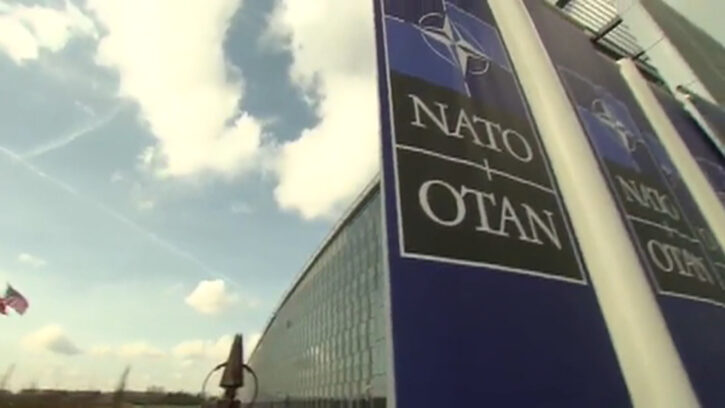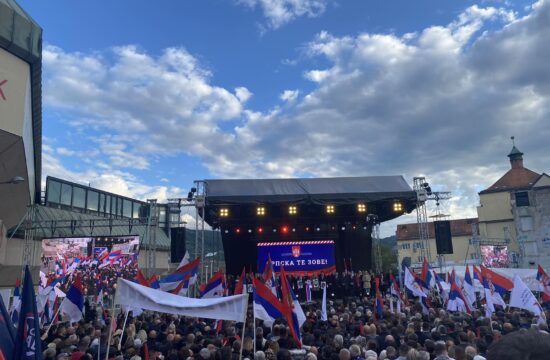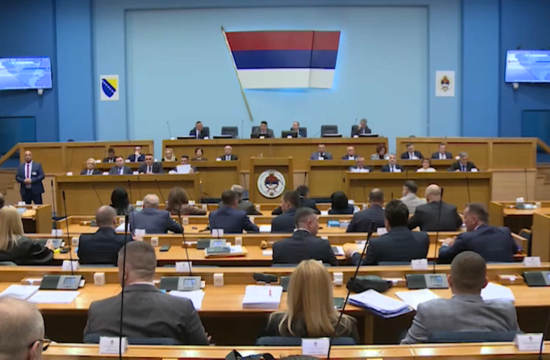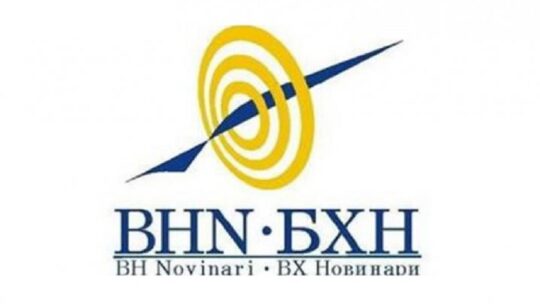
Two days have passed since Bosnia’s political leaders have signed an agreement on how to form a new government, but local and international officials are now asking whether one of the vaguely defined principles in the document says Bosnia will continue its path towards NATO membership or not.
“If this situation continues, it will show Bosnia and Herzegovina as unserious on the international scene, as even European officials are not sure what they expressed support for – will Bosnia and Herzegovina activate its MAP or was the MAP dismissed,” said Foreign Affairs Minister, Igor Crnadak, on Wednesday.
Activating the MAP (Membership Action Plan) is an important step toward the membership with the alliance.
The Agreement, containing 12 principles that need to be met in order for the government to be formed within 30 days, was signed by the leaders of the three strongest national parties that won the October election – Bosniak Bakir Izetbegovic, from the Party for Democratic Action (SDA), Serb Milorad Dodik, from the Alliance of Independent Social Democrats (SNSD) and Croat Dragan Covic, from the Croat Democratic Union (HDZ).
The main reason they could not agree on naming the new government – in Bosnia officially called the Council of Ministers – is a disagreement on whether the country should become a NATO member or not. The Bosniak and Croat members of the tripartite Presidency said they will not greenlight the prime minister proposed by the Bosnian Serb member because the candidate is opposed to the country's membership in the alliance.
In line with neighbouring Serbia, the Serb-majority part of Bosnia, Republika Srpska (RS), had declared military neutrality in 2017, which means it opposes membership in any military alliances. Bosnia has previously pursued NATO membership, but in recent years Bosnian Serb politicians have changed their minds.
Among the principles according to which the new government is to be formed is “the commitment for advancing the relationship with NATO without predicting future decisions in relation to membership of Bosnia and Herzegovina.”
Dodik argued that this means Bosnia will continue cooperating with NATO, but not that it will work toward membership in the alliance.
According to Izetbegovic, however, Bosnia will continue working on becoming a NATO member but the process will slow down for the next few years.
Crnadak said that Bosnia’s diplomatic representative offices in NATO member countries need to know specifically whether the country will now send off the Annual National Programme (ANP) – which Bosnian Serb representatives have been putting off – and with that activate its MAP.
Bosnia obligated itself to do so according to a decision in 2009, which was reached through a consensus.
Crnadak called upon Bosnia’s Presidency members and the party leaders who signed the agreement to clarify it for the sake of the country’s credibility ON the international scene.
The US Embassy welcomed the signing of the Agreement as well but posed the same question.
“We welcome this and we will work with political parties and members of the Presidency to clarify the issue of how the next government will interpret this agreement, including in particular whether there is a clear consensus on the early submission of Bosnia and Herzegovina’s Annual National Program (ANP) to NATO,” the Embassy said on Wednesday.







